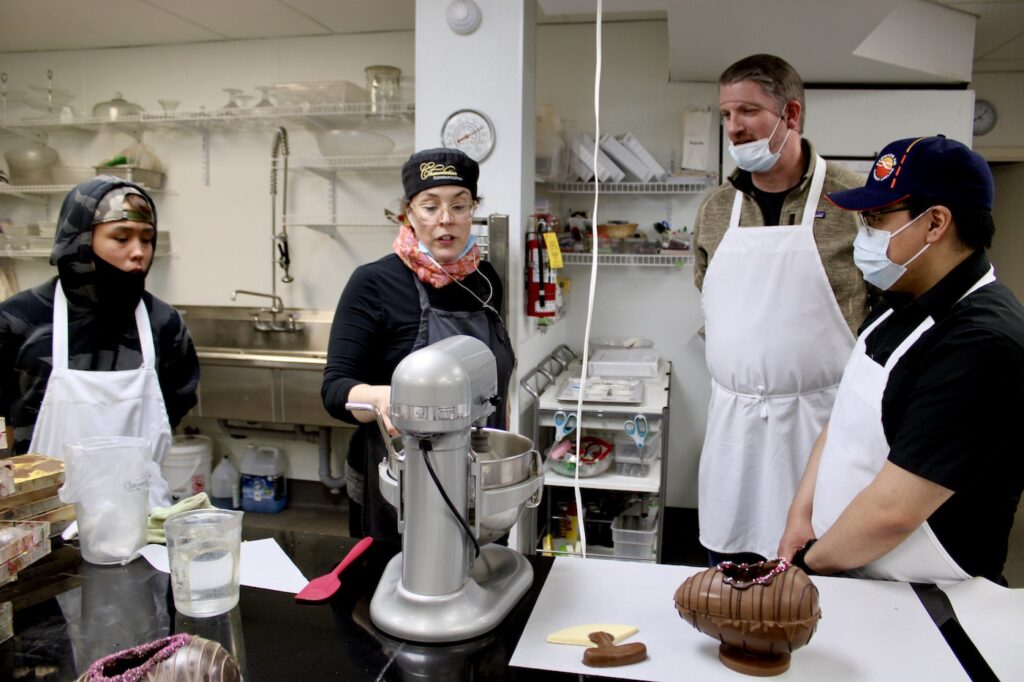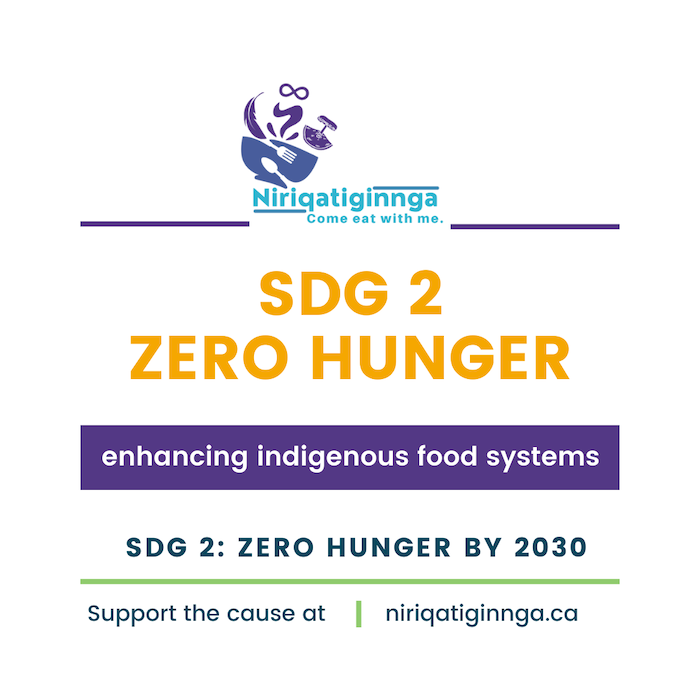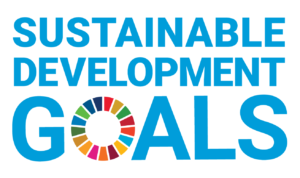A proposal submitted on March 1, 2024.
Just as partnerships at the domestic level are critical to ensuring the safety and security of Canada’s Arctic, it is equally important to work with other Arctic states and international partners in the broader region. That’s why, in collaboration with our partners, peers and collaborators at the Minneapolis College of Art and Design and University of Minnesota Duluth, we’re submitting a special application to build on the original work of the Our People Our Climate project.
As Canadian and American projects begin to prepare for our joint sessions at the 2024 Arctic Congress in Bodø, Norway, there are significant opportunities to build on these approaches to collaborative research with Canada and the United States, leveraging the outcomes to enhance Canada’s resilience in extreme cold conditions and address climate change impacts in the Arctic region. There are also opportunities for technology adoption, innovation and procurement activities conducive to advancing economic reconciliation with Indigenous peoples.
Following the inspiration of previous arts and research work highlighting the need for the direct inclusion of local Indigenous populations in research operations as a form of reconciliation, partners from two countries will collaborate and contribute to new research on climate change visualization and organizational capacity building.
This year, our next proposed project will explore the concept of friendshoring and the broader efforts to strengthen critical supply chains and enhance resilience, particularly in the context of climate change and security challenges in the Arctic region. Here’s how the proposal aligns with friendshoring and related objectives:
- Collaboration with Partners: The project emphasizes collaboration with partners from Canada and the United States, including academic institutions and Indigenous communities, to address climate change impacts and enhance resilience. This collaborative approach mirrors the friendshoring strategy of working closely with trusted partners to mitigate risks and build resilience in critical areas.
- Building Organizational Capacity: The project focuses on organizational capacity building with northern communities to address climate change challenges. This aligns with the goal of friendshoring, which involves leveraging relationships and building capabilities within communities to strengthen supply chains and address vulnerabilities.
- Alignment with National Security Interests: The project recognizes the importance of aligning research and development activities with national security interests, including defence needs and military capability gaps. This alignment ensures that efforts to enhance resilience and address climate change also contribute to broader security objectives, supporting the friendshoring strategy of aligning economic and security interests.
- Engagement with Indigenous Communities: The project places a strong emphasis on engaging with Indigenous communities and advancing economic reconciliation. This aligns with the broader objective of friendshoring, which involves collaborating with diverse stakeholders, including Indigenous peoples, to build resilient supply chains and address shared challenges.
This new, proposed project highlights the need to strike a balance between advancing technology that can serve both civilian and military purposes (dual-use technology), engaging in organizational capacity building to support ongoing international research and development efforts. This project works to ensure that these endeavors align with national security interests and support domestic research into climate change adaptation and mitigation. It emphasizes the potential for and importance of aligning U.S. Army and DND-sponsored research and development activities with specific military capability gaps. It underscores the need to make strategic investments in technology and innovation that address real and pressing defence needs.
The project also acknowledges a need to explore and further engage the Department of National Defence and Canadian Armed Forces’ (DND/CAF) role in advancing whole-of-government priorities in the North. This recognition of the interconnectedness of various government objectives underscores the importance of a coordinated approach to addressing the multifaceted challenges in the region, particularly emphasizing the impacts of climate change on Arctic and military infrastructure.
Budget 2024 focuses on Protecting Critical Supply Chains
The Government of Canada’s 2024 Budget includes a focus on protecting critical supply chains. Recent events around the world, from the pandemic to Russia’s full-scale invasion of Ukraine, have exposed strategic vulnerabilities in critical supply chains, to which Canada and countries around the world are responding by derisking, or friendshoring, their supply chains. Canada is actively working with its allies to strengthen shared supply chains and deepen our economic ties with trusted partners, including in the context of accelerating the transition to a net-zero economy. Ongoing efforts to build our critical supply chains through democracies like our own represent a significant economic opportunity for Canadian businesses and workers, and the government will continue to design domestic policies and programs with friendshoring as a top-of-mind objective.
To reinforce Canada’s role as a trusted supply chain partner for our allies, Budget 2023 took action to mobilize private investment and grow Canada’s economy towards net-zero. These investments are growing Canada’s economic capacity in industries across the economy, while simultaneously reducing Canada’s emissions and strengthening our essential trading relationships.
On April 15, 2024, Liberal Member of Parliament for Saint-Laurent and member of the Standing Committee on National Defence (NDDN) and member of the Canadian NATO Parliamentary Association (CANA) Emmanuella Lambropoulos raised Arctic sovereignty and security as an important issue. Ms. Lambropoulos told the Hon. Bill Blair, Minister of National Defence the Standing Committee recommended infrastructure upgrades and an enhanced presence of the armed forces in the north.
“Last spring our committee studied Arctic sovereignty and security. We recommended infrastructure upgrades and an enhanced presence of the armed forces in the north,” she asked. “You touched on those things a little bit in your opening remarks. I’m wondering if you can give us some more specific details about the infrastructure investments and upgrades that will be included in this policy.”
“Recognizing our responsibility to defend our own country and our own continent will make us a stronger partner to our NATO allies,” the Minister replied. “It will also, I think, provide assurances to all our NATO partners, but in particular the United States, that Canada is prepared to step up and do what is required.”
Hon. Bill Blair, Minister of National Defence, April 15, 2024
Minister Blair also highlighted the unique challenges and opportunities of climate change and mixed-use civilian and military infrastructure. “One thing that I think many people in southern Canada sometimes think, when they think about protecting northern sovereignty, is that we occasionally have a plane fly over, or perhaps when the ice is out a boat goes by. When we’ve gone to northern communities and listened to them, they’ve said, no, it’s about infrastructure. It’s about airports. It’s about highways. It’s about fibre optic communications. It’s about water treatment plants and power plants. It’s about medical facilities.”
“We know that we have to build five different northern support hubs so that we can fly our new fighter jets, multi-mission aircraft, search and rescue aircraft and helicopters into that region. We know that we’ll have to persistently deploy members of the Canadian Armed Forces and we’ll have to train in the north. There’s a real opportunity in the infrastructure that this will require for it to be multi-use. In my conversations with the northern premiers and with Inuit and indigenous communities, they are very much engaged with us in the importance of building infrastructure. First of all, they’ll be very much involved in its construction but also in its subsequent use, because that will support their communities. If a runway can be used to land a fighter jet or transport plane, it can also be used for medical evacuation and search and rescue aircraft.
This is what we mean by multi-use. I think it’s the mutual benefits. It’s not just an investment in defence. It’s an investment in Canadians, particularly in our northern communities.”
Hon. Bill Blair, Minister of National Defence, April 15, 2024
The vast reach and impacts of climate change present immediate and long-term security challenges to Canada both at home and abroad. Climate change is a complex and multi-faceted security challenge, as militaries are increasingly called upon to assist with its consequences, including extreme weather events and natural disasters. This often requires complex responses, while still concurrently supporting the full spectrum of more traditional military operations domestically and overseas. DND/CAF must adapt its planning and activities in accordance with the Government of Canada’s greening objectives, while striving to maintain an agile and resilient force that is responsive to the impacts of climate change.
This latest proposal submission, titled “Enhancing Our People Our Climate – Building Resilience through organizational capacity building with Northern Communities,” is being submitted to the Department of National Defence (DND) Indigenous Reconciliation Program – Grants and contributions streams with the aim of enhancing relationship development and engagement with northern communities on the pressing challenges posed by climate change while also advancing economic reconciliation with Indigenous peoples.
The application deadline is March 1, 2024. Under the program, Indigenous people, governments, and organizations, including bands, tribal councils, and representative bodies, are eligible to apply for funding. Engagement and Collaboration Grants, as well as Research Support and Policy Development Contributions, constitute the available streams of funding.
How you can support:
You can support our initiative by contributing your expertise, resources, and networks to help us achieve our goals. Whether you have experience in climate resilience, community engagement, Indigenous reconciliation, or project management, your skills and knowledge can make a significant impact. Additionally, financial contributions are vital to ensuring the successful implementation of our project, enabling us to cover essential expenses such as research activities, community outreach, and capacity-building initiatives. You can read our proposal here.
Furthermore, spreading awareness about our initiative within your network and advocating for its importance can help garner support and amplify our efforts. Together, we can work towards building resilience in northern communities, fostering reconciliation, and addressing the challenges posed by climate change. Contact us at: jamie@niriqatiginnga.ca or tony@niriqatiginnga.ca for more information on how you can get involved!
Program details:
The Indigenous Reconciliation Program is part of the Department of National Defence’s commitment to advancing reconciliation with Indigenous partners. In fostering dialogue, collaboration, and policy development, this initiative aims to strengthen relationships and promote understanding between Indigenous communities and the DND/CAF.
Engagement and Collaboration Grants, with funding up to $50,000, aim to facilitate dialogue through workshops, conferences, cultural activities, and community outreach events. Meanwhile, Research Support Contributions are directed towards research activities fostering collaboration between Indigenous communities and military establishments. Policy Development Contributions, on the other hand, support longer-term relationship-building and policy development projects in alignment with Canada’s Defence Policy, Our North, Strong and Free: A Renewed Vision for Canada’s Defence.
Interested parties must submit funding proposals by March 1 of each fiscal year to ensure timely processing. These proposals should include detailed information such as the project’s objectives, participant lists, Indigenous group representation, accessibility measures, and budget breakdowns. Eligible expenses cover a wide array of costs, including research, conference/seminar logistics, administrative/support salaries, professional services, advertising/promotional material, travel, facility rentals, communications, disability-related support, adaptive technology, and cultural activities.









